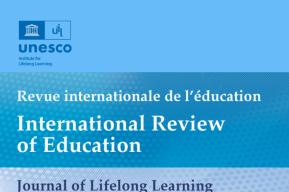News
Hybrid University returns for Phase B, exploring biosphere reserves as sites to develop ocean literacy

Since 2012, the UNESCO Regional Bureau for Science and Culture in Europe has been organising summer universities together with the Mediterranean Information Office for Environment, Culture and Sustainable Development (MIO-ECSDE) and other hosting partners. COVID-19 limitation in recent years allowed for a hybrid event, increasing participation and broadening the provenance of participants.
The theme of this edition of the Hybrid University was dedicated to biosphere reserves as sites to develop ocean literacy, with the aim of providing participants the knowledge, skills and methodology to foster the Sustainable Development Goals (SDGs) and 2030 Agenda for Sustainable Development in UNESCO designated sites.
Island and coastal biosphere reserves are areas particularly sensitive to climate change and global warming, as they contain high levels of biodiversity and fragile ecosystems. With over 730 biosphere reserves in more than 130 countries worldwide, these reserves present great opportunities to study these global problems on a micro level and can become living laboratories to test and implement possible solutions.
Phase A of the Hybrid University was composed of a pre-session held in Crete, Greece, from 12 to 14 September 2022, and a main session organised from 5 to 10 October 2022 in Cyprus, with different interactive workshops, lectures and field visits. Phase B followed online over 4 weeks in January and February, combining a self-paced teaching format with weekly Q&A live meetings with experts.
Phase B built on the knowledge and outcomes proposed at the autumn sessions and used expert video lectures, toolkits and ocean literacy materials produced by the UNESCO Intergovernmental Oceanographic Commission (IOC) to explain and develop concepts. In the first week, participants were introduced to the UN Ocean Decade’s specific mission and the role of Ocean Literacy, which has been historically defined as the ‘understanding of the ocean’s influence on us and our influence on the ocean’.
![2022 Hybrid University - Phase A – Teaser [29/12/2022]](/sites/default/files/styles/paragraph_medium_desktop/article/2023-04/2022_Hybrid_Phase_B%20video.jpg?itok=VlABBoDe)
The concept of ocean literacy has radically evolved, from simply increasing people's awareness of the state of the ocean, to becoming a tool and an approach that helps different stakeholders transform ocean knowledge into concrete actions to promote ocean sustainability
As the course progressed, participants addressed ocean-related challenges and the risks connected to overexploitation, climate change and marine pollution. The flexible format of the Hybrid University promoted attendees’ active participation and fostered dialogues to discover solutions and deal with the existing challenges. Special focus was given to the role of biosphere reserves as open labs for testing innovative and experimental ideas. Jonathan Baker, Head of Science unit, UNESCO Regional Bureau for Science and Culture in Europe, stressed that pioneering initiatives and good models developed at island and coastal biosphere reserves can be inspirational for all ocean literacy learners.
The final week focused on how to better promote and communicate actions for the ocean through ocean literacy, an important skill to be used in both informal and formal settings, as it has the potential to empower communities through participatory and multidisciplinary approaches.

Promoting ocean literacy in island and marine biosphere reserves calls for a participatory, integrated and multi-stakeholder approach. Amongst other stakeholders, youth is a key group in promoting ocean literacy in biosphere reserves.
Over 90 learners from 36 different countries took part in the Hybrid University, confirming the success of such a flexible hybrid format. Participants’ final evaluations also showed a high overall satisfaction from learners, an encouraging result for future years.
The 2022-2023 Hybrid University was organised by the UNESCO Regional Bureau for Science and Culture in Europe in collaboration with the Cyprus Ministry of Education, Culture, Youth and Sports, the MEdIES initiative of MIO-ECSDE, the Region of Crete and the UNESCO Chair and Network on Sustainable Development Management and Education.





